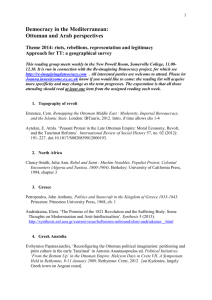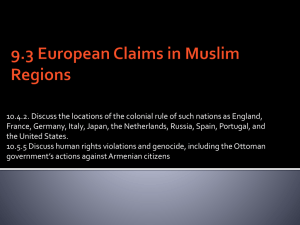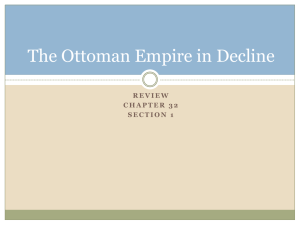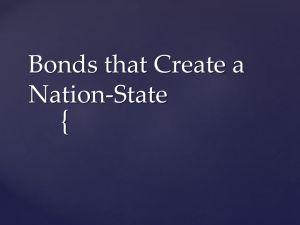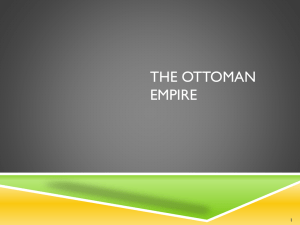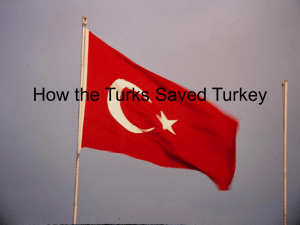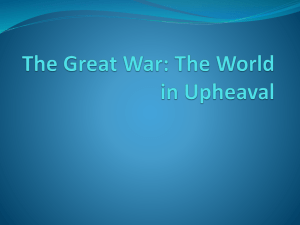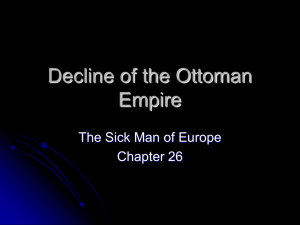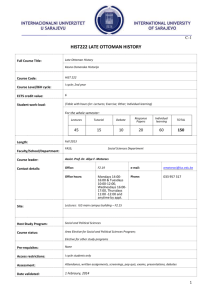Abstract
advertisement
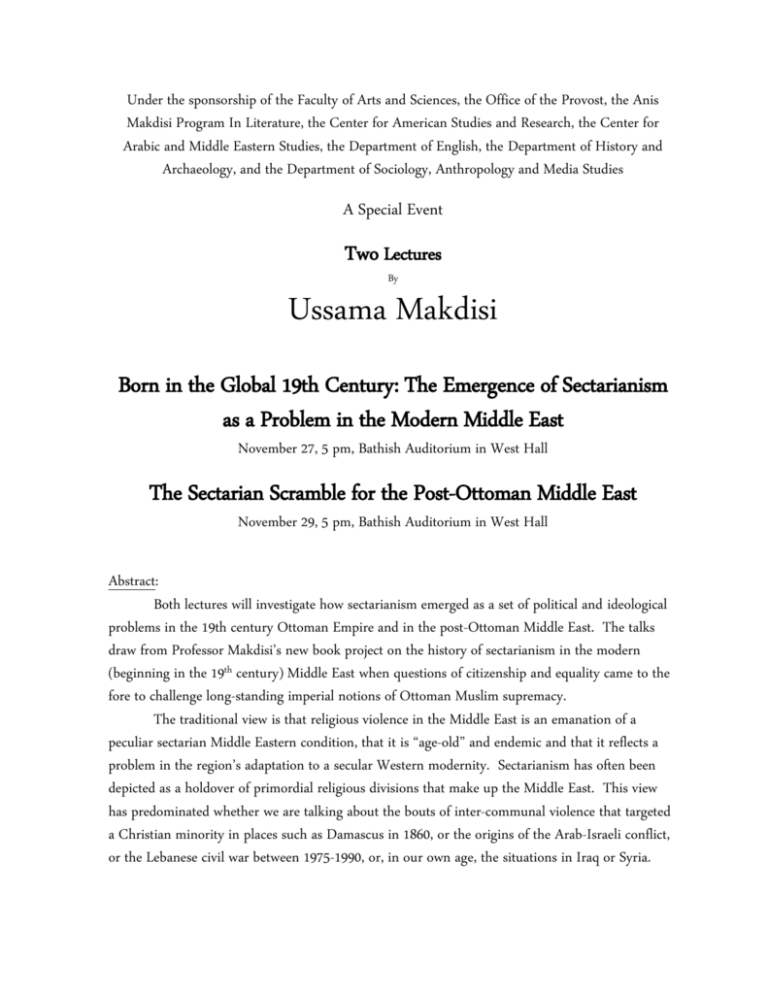
Under the sponsorship of the Faculty of Arts and Sciences, the Office of the Provost, the Anis Makdisi Program In Literature, the Center for American Studies and Research, the Center for Arabic and Middle Eastern Studies, the Department of English, the Department of History and Archaeology, and the Department of Sociology, Anthropology and Media Studies A Special Event Two Lectures By Ussama Makdisi Born in the Global 19th Century: The Emergence of Sectarianism as a Problem in the Modern Middle East November 27, 5 pm, Bathish Auditorium in West Hall The Sectarian Scramble for the Post-Ottoman Middle East November 29, 5 pm, Bathish Auditorium in West Hall Abstract: Both lectures will investigate how sectarianism emerged as a set of political and ideological problems in the 19th century Ottoman Empire and in the post-Ottoman Middle East. The talks draw from Professor Makdisi’s new book project on the history of sectarianism in the modern (beginning in the 19th century) Middle East when questions of citizenship and equality came to the fore to challenge long-standing imperial notions of Ottoman Muslim supremacy. The traditional view is that religious violence in the Middle East is an emanation of a peculiar sectarian Middle Eastern condition, that it is “age-old” and endemic and that it reflects a problem in the region’s adaptation to a secular Western modernity. Sectarianism has often been depicted as a holdover of primordial religious divisions that make up the Middle East. This view has predominated whether we are talking about the bouts of inter-communal violence that targeted a Christian minority in places such as Damascus in 1860, or the origins of the Arab-Israeli conflict, or the Lebanese civil war between 1975-1990, or, in our own age, the situations in Iraq or Syria. In contrast, Professor Makdisi suggests that an Ottoman crisis of religious pluralism that began in the nineteenth century was itself part of a global problem in which many empires and nation-states struggled to transform explicit politics of discrimination into those of citizenship and equality. That the Ottoman empire and the post-Ottoman Middle East have struggled with these transformations, in other words, should not be seen a peculiar cultural/religious problem with “Islam,” but rather as a particular political problem that involved both Ottoman and Western powers and that needs to be analyzed rather than judged. Professor Makdisi will also consider the extent to which Western involvement in the internal affairs of the Ottoman Empire, and then in the shaping of the post-Ottoman Middle East produced and exacerbated the problem of sectarianism in the region that we today think of as “age-old.” The advent of unprecedented inter-communal violence in the mid-nineteenth century between Muslims and Christians in the Ottoman Empire raised the vital question of how to build a political system based on equal representation regardless of religious affiliation. But the ultimate failure of the Ottomans to create a viable state based on these notions also raised and continues to raise profound questions as to the implications and meaning of this failure. The first lecture explores the advent, and limits, of a new ecumenical age in the Mashriq in the late Ottoman Empire between 1860 and 1920. The second considers how the period of the mandates, and specifically the advent of Zionism in Palestine, severely tested the viability and logic of the Arabic nahda.

